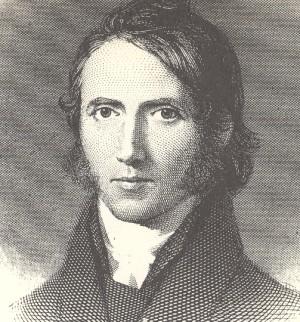| Unitarian
minister and leader of New England liberalism. |
 |
|
Leader
of the Unitarians, William Ellery Channing rejected the doctrine
of the Trinity
|
A graduate of Harvard
College, Channing was the pastor of the Federal Street Church in Boston,
Massachusetts, which he led from Congregationalism to Unitarianism. Channing
published sermons and lectures which helped fuel a conflict known as "the
Unitarian controversy." His 1819 work Unitarian Christianity marked
him as the spokesman for a New England version of liberal
theology, over against Puritanism.
Unitarianism rejected the doctrine of the Trinity
in favor of a one-person God whose key attribute was benevolence. Unitarianism
rejected a high view of the authority of Scripture, in favor of historicism
and rationalism as modes of interpretation. Unitarianism rejected original
sin and affirmed the divine potential of each individual to grow in God's
likeness. The bard of Transcendentalism, Ralph Waldo
Emerson, popularized such views.
|